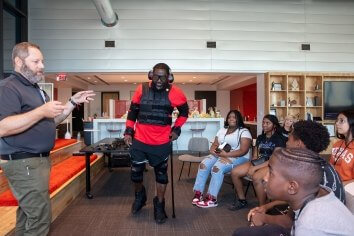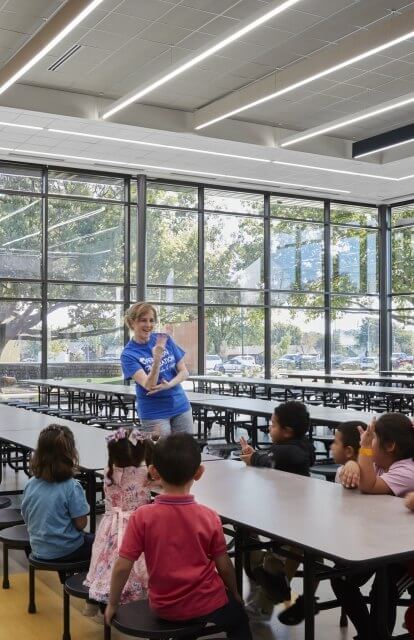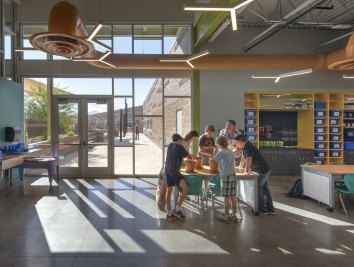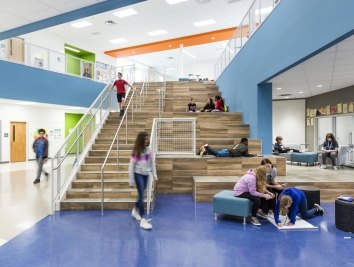Corgan Awarded ASID Foundation Research Grant

Bridging the Gap
Designers are tasked with creating universally accessible spaces that will be experienced by a broader spectrum of users than ever before, accommodating individuals ranging in age, health, and ability. According to recent research from Hugo, Corgan’s research and innovation group, approximately 1 in 8 teachers identify as having one or more disabilities — including learning differences, chronic illnesses, physical disabilities, or visual impairments — that impacts their experience with their environment. For designers, it can be difficult to truly understand and design for the specific challenges educators with disabilities encounter while working in environments primarily designed for children.
Designing schools is about providing opportunities for growth, fostering engagement and connection, and supporting the wellbeing of whole communities — including our educators. For the education team, this opportunity will help us to better understand the perspectives, needs, experiences, and unique value of teachers with disabilities.
To reduce this “empathy gap” and improve the functionality of school design for those with temporary or chronic disabilities and conditions, Hugo is partnering with the firm’s education sector on research supported by a $30,000 grant from the American Society of Interior Designers Foundation (ASID Foundation). Over the course of eight months, the research team, which includes Melissa Hoelting, Chloe Hosid, Samantha Flores, Sangeetha Karthik, Kevin Sloan, and Mike Steiner, will delve into the perspectives of teachers with disabilities to promote design that better serves this diverse community with limited visibility in both our schools and in existing research.
One of my favorite parts of design research is building ecosystems of knowledge – through an investigation, we can identify new areas of exploration that can serve as a springboard, letting us to dive deeper and uncover new opportunities for further research.

Suiting up
Drawing from insight gathered through outreach and interviews with real teachers who identify as having a disability, the team will develop user personas and journey maps that will be used as a framework to explore common challenges and pain points in an on-site experiment conducted at a Corgan-designed elementary school. Using a gerontological suit (GERT suit) deployed in earlier Corgan studies, the researchers will observe real educators as they complete high-fidelity tasks while experiencing a simulated disability. By wearing strategically selected elements of the GERT suit, educators without disabilities will be able to provide direct feedback on their experiences and help the research team identify opportunities for targeted design interventions to support their peers.
Learning from teachers and their unique needs in learning environments lets us make design decisions that are more thoughtful and personalized for all end-users. We are grateful for support from the ASID Foundation to allow us to dig into research that will guide us towards scalable design solutions that resonate with teacher's real-life needs.
Rolling it Out
The measured and observed data gathered during the experiment and from in-depth interviews will be compiled and analyzed to provide a deeper understanding of this underrepresented user group’s unique needs. A hands-on design workshop will be conducted in the Fall of 2024 to apply the insights gained to empathetic design solutions at a variety of scales. By the end of the year, the team will assemble their findings into an open-source design guidebook aimed to serve as a resource for designers and a source of support for educators to advocate for their own needs.
Our focused research will provide actionable insight to better support educators and all that they bring to the learning environment through thoughtful, empathetic design. As a team focused on learning, we are grateful for this opportunity to learn and to share new insight with the education and design communities.
Interested in participating?
We are capturing teacher insights to help us identify and understand the challenges and pain points to address when designing teaching environments for teachers with disabilities.











